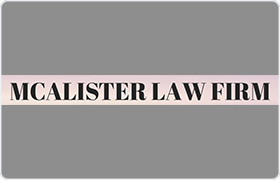Stone County, MS White Collar Crime Lawyers
Sponsored Law Firm
-
 x
x

Click For More Info:
-
McAlister Law Firm, LLC
419 Security Square Gulfport, MS 39507» view mapCriminal Defense Law Your Gulf Coast Attorney
An Attorney with Nineteen years of court room experience. Licensed in the States of Mississippi and Alabama.
228-265-5190
Not enough matches for Stone White Collar Crime lawyer.
Below are all Stone lawyers.
 Carolyn McAlister Gulfport, MS
Carolyn McAlister Gulfport, MS
